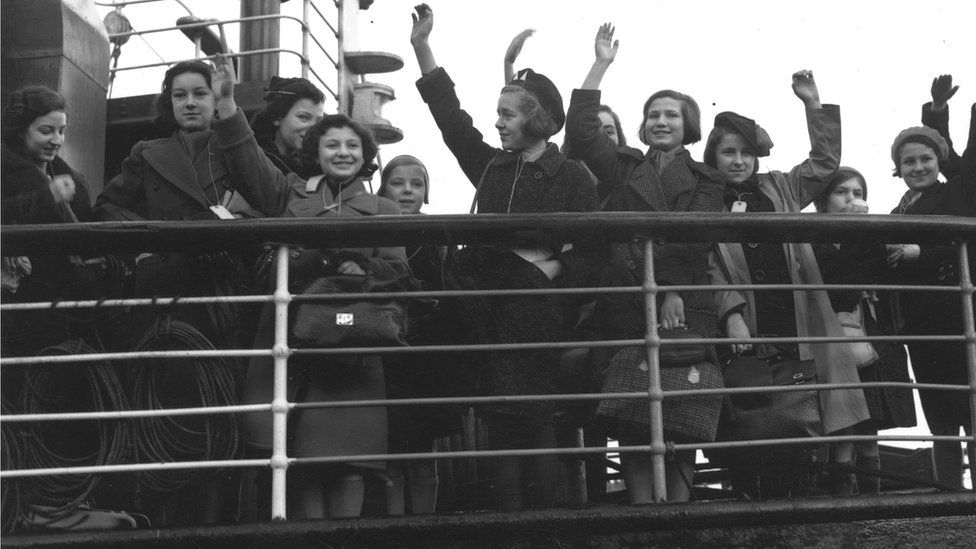When Kindertransport arrived in Llanwrtyd Wells
- Published

It is said to be the smallest town in Britain, but some might argue it has the biggest heart.
In 1943, Llanwrtyd Wells in Powys took in 120 child refugees from the former Czechoslovakia.
They were Jewish refugees who had been forced to flee their homeland because of Nazi persecution.
About 10,000, mainly Jewish, children from Czechoslovakia, Germany and Austria arrived in the UK as part of the scheme known as Kindertransport.
On 21 November, it will be 80 years since the UK government agreed to allow the children to seek sanctuary in the UK.
Lady Milena Grenfell-Baines was nine when she arrived in the UK in the summer of 1939.
She was on one of the trains organised by Sir Nicholas Winton to help children escape Nazi-occupied Czechoslovakia.
Lady Grenfell-Baines later became a pupil at the Czechoslovak Secondary School in Llanwrtyd Wells after the Czech government in exile rented a large home, which had once been part of a family farm estate.
Recalling the day she left her family behind, she said: "We sat in this compartment and as we were leaving we held hands and we said: 'We're not going to cry.'
"Parents tried to keep very cheerful waving us goodbye."
Many children never saw their families again, but Lady Grenfell-Baines's father had already made it to safety in the UK and, in 1940, her mother arrived in the UK via Norway.
In 1943, Lady Grenfell-Baines was sent to school in Llanwrtyd Wells.
"That was absolutely wonderful. We were like a family there," she said.
"This troop of foreigners arrived and so to introduce ourselves we decided to give them a concert and we sang lots of Czech and Slovak songs, but we ended up singing Hen Wlad Fy Nhadau, which is the Land of My Fathers in Welsh, and they adopted us."
The close links between the former pupils and Llanwrtyd Wells continue to this day.
As well as still visiting the town and their old school, the former Czech refugees donated a piece of gold which has formed part of the mayor's chain of office, while Llanwrtyd is twinned with Cesky Krumlov, a town in the Czech Republic.
Llanwrtyd councillor Peter James, who gives talks on the history of the former Czech school and its pupils, said despite being uprooted from their homes and their families, the children went on to be successful in later life.
"They come back and they're so humble. But they lost their family and their homeland and they come back to Llanwrtyd and they're always laughing and joking," he said.
Some of the former refugees have told Mr James that when they return, they are "coming home".
Many of those who studied in Llanwrtyd Wells have the late Sir Nicholas Winton to thank for saving their lives.
He organised the rescue of 669 children from Nazi-occupied Czechoslovakia. In latter years, after his heroics came to public attention, he visited Llanwrtyd Wells during one of the old school reunions.
Sir Nicholas's daughter Barbara, who is also his biographer, said many of the Kindertransport paid a high price for their freedom.
"A bit of research was done recently by the Association of Jewish Refugees, who wrote to many thousands of kinder and got back a huge response of over 1,000 people," she said.
"From that, they've determined that over 50% never saw either of their parents again. Most of them lost nearly their entire families."
- Published22 June 2018
- Published19 May 2016